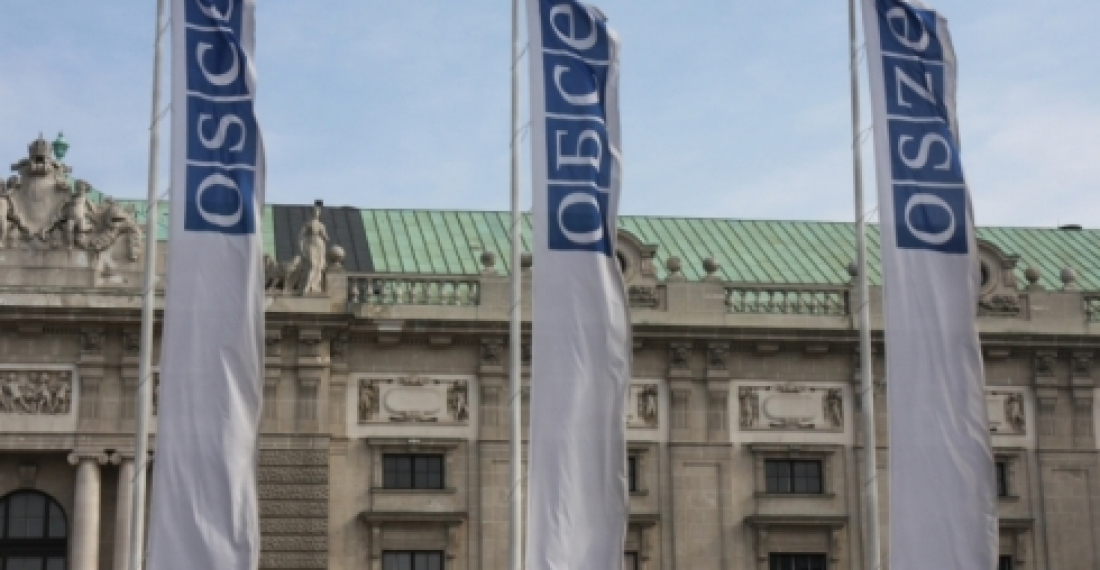Азербайджан известил Организацию по безопасности и сотрудничеству в Европе (ОБСЕ) о закрытии офиса организации в Баку. Представитель ОБСЕ подтвердил commonspace.eu то, что Министерство иностранных дел Азербайджана направило вербальную ноту в ОБСЕ, информируя Организацию о том, что правительство с 4 июня завершает сотрудничество по Меморандуму о взаимопонимании между Организацией и правительством по Координатору проекта ОБСЕ в Баку. В вербальной ноте правительство Азербайджана предоставило ОБСЕ месяц с 4 июня для завершения технических вопросов, связанных с прекращением Меморандума. ОБСЕ в настоящее время рассматривает свой ответ на вербальную ноту.
Офис Миссии ОБСЕ в Баку был создан в 1999 году с целью "способствовать реализации принципов и обязательств ОБСЕ, а также сотрудничества Республики Азербайджан в рамках ОБСЕ, во всех сферах ОБСЕ, включая человеческие, политические, экономические и экологические аспекты безопасности и стабильности". Он начал функционировать 17 июля 2000 года.
Однако, в 2013 году Азербайджан использовал право на вето на заседании Постоянного совета ОБСЕ, чтобы блокировать расширение мандата офиса. Вместо этого было принято компромиссное решение, в результате чего статус офиса был понижен до простого проект офиса. Мандат проектного офиса включал:
"Поддержка сотрудничества между правительством Азербайджана и ОБСЕ и ее институтами, направленная на реализацию принципов и обязательств ОБСЕ, планирование и реализация проектов между соответствующими органами Азербайджана и ОБСЕ и ее институтами, охватывающая все три измерения всеобъемлющей концепции безопасности ОБСЕ, принимая во внимание потребности и приоритеты правительства Азербайджана; Поддержание контактов с правительственными и неправительственными органами, местными органами власти, университетами, научно-исследовательскими институтами и неправительственными организациями; выполнение других задач, которые считаются подходящими председателем ОБСЕ или другими институтами ОБСЕ и согласованы между правительством Азербайджана и ОБСЕ ".
Такое решение было принято после приостановления ОБСЕ назначения руководителя бюро Алексея Алексис Шахтахтински на фоне сообщений о его критике в Постоянном совете ОБСЕ. В среду (3 июня) Шахтахтински нанес визит Ильхаму Алиеву, в течение которого президент Алиев, как цитирует сайт президента, "приветствовал вклад в развитие сотрудничества между Азербайджаном и ОБСЕ Алексиса Шахтахтински, и отметил, что реализованные проекты дали хороший результат. Президент Ильхам Алиев пожелал успехов дипломату в его дальнейшей деятельности".
Новость пришла на ту же неделю, что и визит председателя ОБСЕ, министра иностранных дел Сербии, Ивица Дачича, который побывал с визитом в Баку в рамках турне по региону. Дачич посетил офис ОБСЕ и никакого упоминания о возможном закрытии в заявлениях, сделанных после его встреч с официальными лицами Азербайджана, не было.
Источник: commonspace.eu






